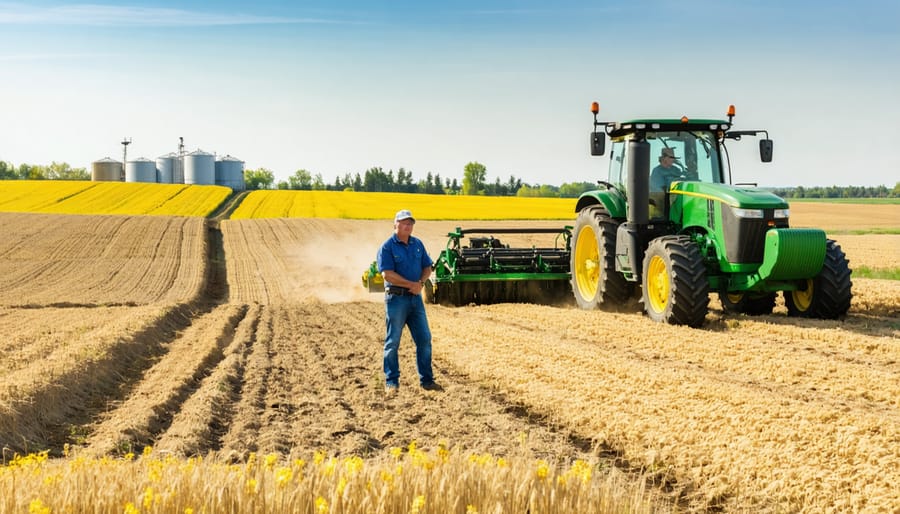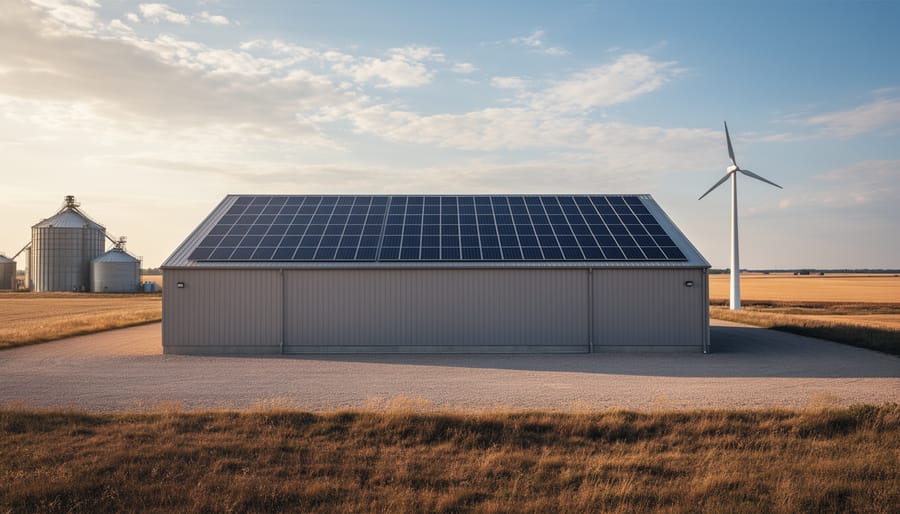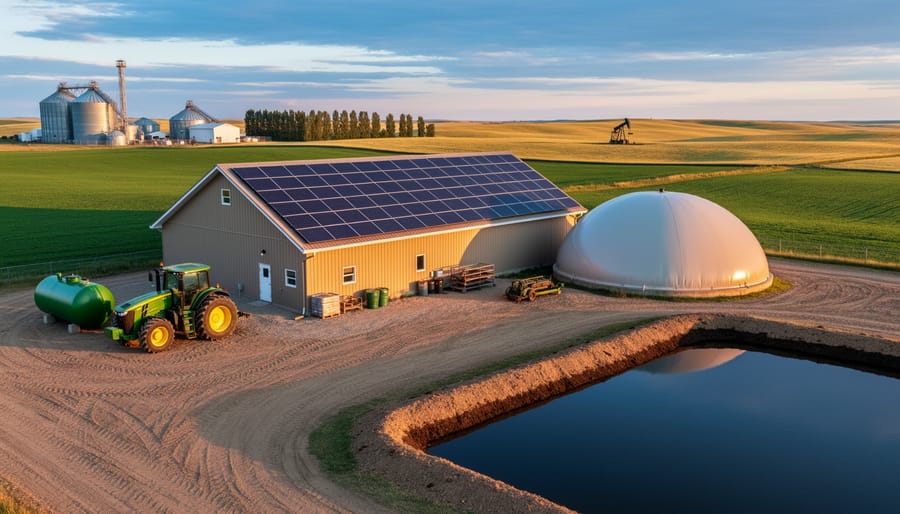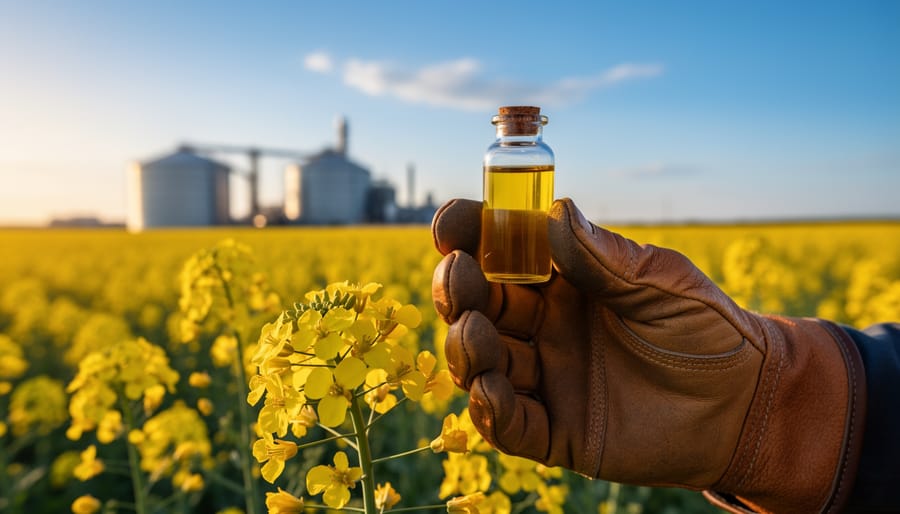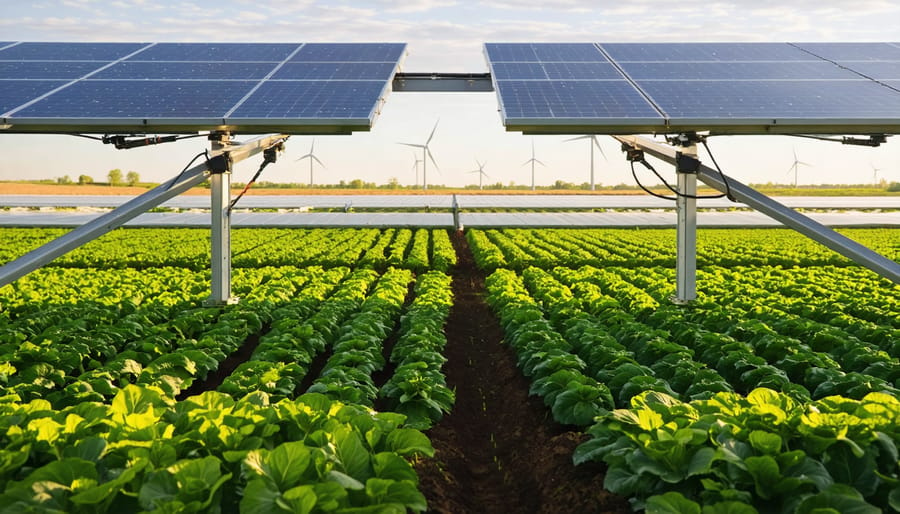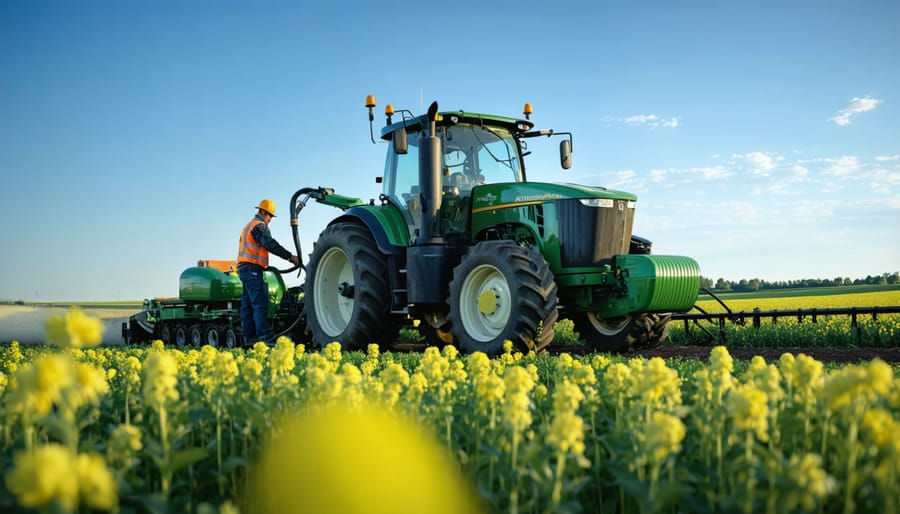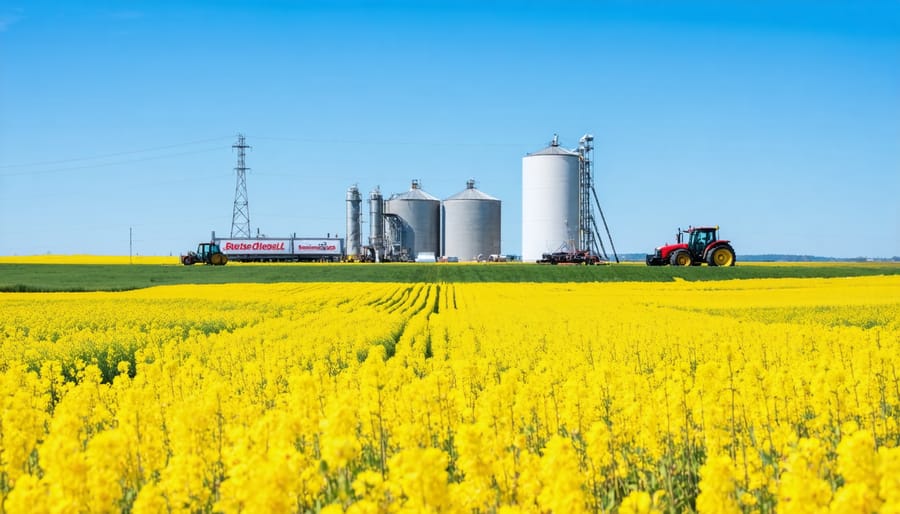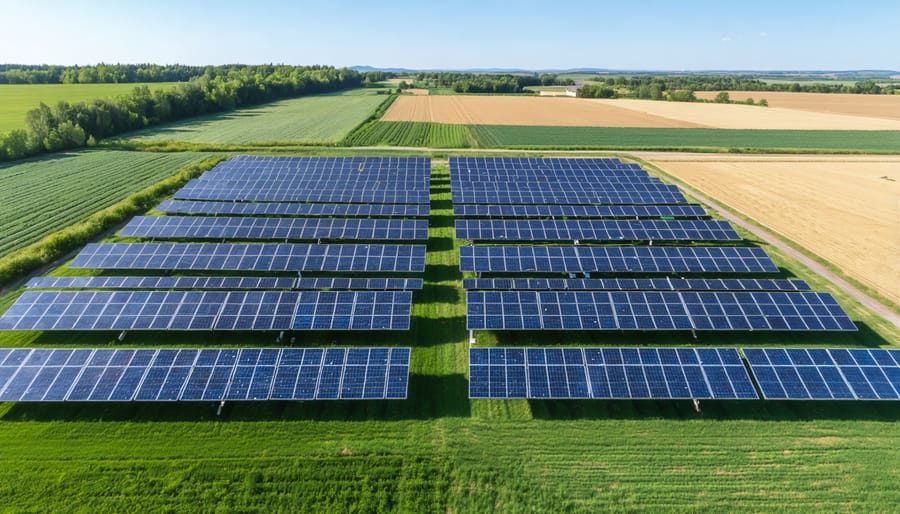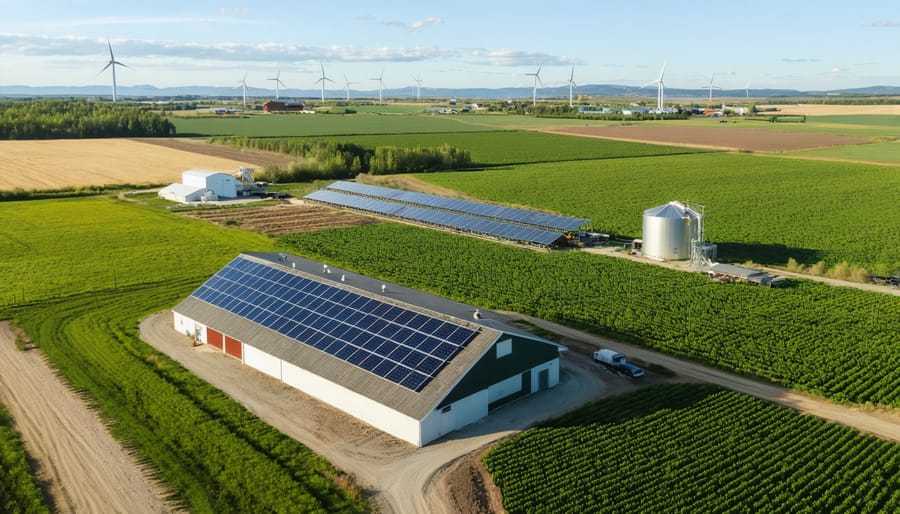Biofuels represent a revolutionary shift in modern agriculture, transforming common farm waste and crops into sustainable energy sources that power everything from tractors to grain dryers. Here in Alberta, where over 50 million acres of farmland produces abundant agricultural residues, biofuels offer farmers a practical path to energy independence while creating new revenue streams. By converting materials like canola oil, corn stalks, and wheat straw into clean-burning fuel, Canadian farmers are cutting operational costs by up to 40% while reducing their carbon footprint. This homegrown energy solution not only strengthens farm sustainability but also builds resilient local economies, with every litre of biofuel produced keeping energy dollars within our agricultural communities. As global fuel prices fluctuate and environmental pressures mount, biofuels emerge as a proven technology that puts control back in farmers’ hands, turning yesterday’s waste into tomorrow’s energy security.
Understanding Agricultural Biofuels
What Makes Biodiesel Different
Biodiesel stands out as an exceptional alternative for farm equipment due to its unique properties that align perfectly with agricultural operations. Unlike conventional diesel, biodiesel has a higher cetane number and superior lubricity, which means it’s gentler on engine components and can potentially extend equipment life.
What makes biodiesel particularly attractive for Canadian farmers is its excellent cold-weather performance when properly blended. While pure biodiesel (B100) may gel at higher temperatures, common blends like B20 (20% biodiesel, 80% petroleum diesel) perform reliably in Alberta’s climate with appropriate winterization additives.
The fuel’s cleaner burn produces fewer emissions and less visible smoke, which is especially beneficial when operating equipment in enclosed spaces like barns or greenhouses. Additionally, biodiesel’s biodegradability makes it safer for agricultural environments – any accidental spills break down naturally without causing lasting soil contamination.
From a maintenance perspective, biodiesel’s natural cleaning properties help keep fuel systems clear of deposits, though farmers should be aware this may require more frequent filter changes initially. The fuel’s higher oxygen content also results in more complete combustion, potentially improving engine performance in well-maintained equipment.
Most modern agricultural equipment requires no modifications to run on biodiesel blends up to B20, making it a practical choice for farmers looking to transition to more sustainable practices while maintaining reliable equipment performance.
From Waste to Fuel: The Production Process
Converting agricultural waste into biofuel follows a straightforward yet carefully controlled process that any farm operation can implement with the right equipment. The journey from bioenergy from agricultural waste to usable fuel begins with collecting suitable feedstock, such as crop residues, livestock manure, or used cooking oil.
First, the raw materials undergo pre-treatment, where they’re cleaned and filtered to remove impurities. For crop residues, this means grinding the material into a consistent size and removing any stones or metal pieces. The cleaned biomass then moves to the conversion phase, where it’s heated in an oxygen-controlled environment at temperatures between 450-550°C.
During this process, the organic matter breaks down into three main components: bio-oil, biochar, and syngas. The bio-oil, which contains the highest energy content, is collected and refined further through a process called transesterification. Here, the oil reacts with methanol in the presence of a catalyst, typically potassium hydroxide, producing biodiesel and glycerol as a by-product.
The final step involves purifying the biodiesel through washing and drying cycles to meet fuel quality standards. On average, 1,000 kg of agricultural waste can produce approximately 200 litres of biodiesel, making this a viable option for farms looking to reduce waste while creating their own fuel supply. The entire process typically takes 48-72 hours from start to finish, with most steps being automated in modern facilities.
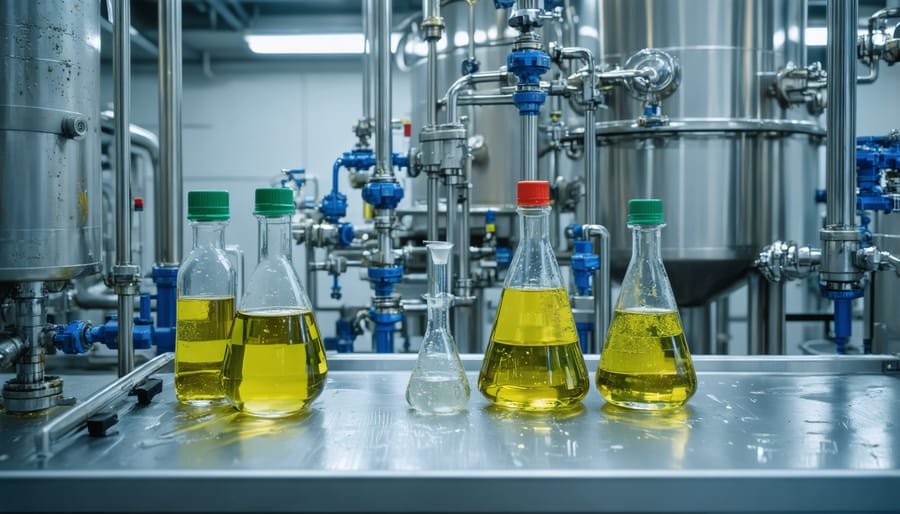
Real Results from Alberta’s Fields
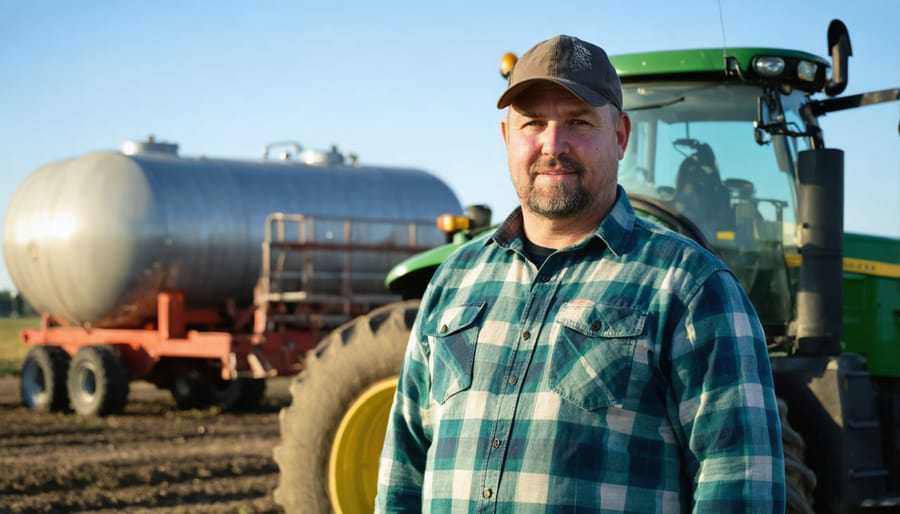
Cost Savings and Performance Data
The biodiesel revolution in Canadian farming has demonstrated significant cost advantages for agricultural operations. Recent data from Alberta farms shows that switching to biofuel can reduce fuel costs by 15-30% compared to conventional diesel, depending on current market prices and production scale.
Take the Thompson family farm in Red Deer County as an example. After implementing an on-farm biofuel production system in 2021, they reported annual fuel savings of $42,000 across their 2,000-hectare operation. Their initial investment of $75,000 in processing equipment achieved payback within two years through reduced fuel costs and government incentives.
Performance metrics from multiple Alberta farms indicate that properly processed biofuel maintains engine efficiency comparable to conventional diesel. Winter testing at temperatures as low as -30°C showed successful operation when using appropriate cold-weather additives. Equipment maintenance costs remained stable, with some farmers reporting reduced carbon buildup in engines.
The Cooperative Research Network of Central Alberta tracked 15 farms using biofuel over three years, documenting average annual savings of $25,000 for mid-sized operations (800-1,200 hectares). Additional benefits included reduced greenhouse gas emissions by 65-75% compared to petroleum diesel, contributing to carbon credit opportunities.
Local success stories demonstrate that farms producing their own biofuel typically achieve production costs between $0.85-$1.10 per litre, comparing favorably to conventional diesel prices ranging from $1.50-$1.80 per litre throughout 2022-2023. These figures include labor, processing costs, and feedstock expenses, showing the practical economic advantages of biofuel adoption in Canadian agriculture.
Environmental Impact on Farm Operations
The adoption of biofuels in farm operations has demonstrated significant environmental benefits across Alberta’s agricultural landscape. Recent studies from the University of Alberta show that farms incorporating biofuels reduce their carbon emissions by an average of 65% compared to conventional diesel operations. For every 1,000 litres of biodiesel used, approximately 2.7 tonnes of carbon dioxide emissions are avoided.
Local success stories highlight these environmental advantages. The Morrison Family Farm in Red Deer County switched to B20 biodiesel blend in their equipment fleet, resulting in a documented 20% reduction in their operation’s carbon footprint within the first year. Similarly, collective data from the Canola Council of Canada indicates that canola-based biodiesel produces 90% fewer greenhouse gas emissions than fossil diesel when calculated on a life-cycle basis.
Beyond emissions reduction, biofuel implementation supports soil health and water conservation. Farmers report decreased soil contamination from fuel spills, as biodiesel naturally biodegrades four times faster than petroleum diesel. Water systems benefit too, with studies showing reduced toxicity levels in groundwater near farms using biodiesel compared to traditional fuel operations.
The environmental impact extends to air quality improvements. During peak farming seasons, operations using biodiesel report 47% fewer particulate emissions, contributing to better air quality for farm workers and surrounding communities. The reduction in sulfur emissions is particularly noteworthy, with measurements showing up to 100% decrease when using pure biodiesel.
These environmental benefits align with Canada’s agricultural sustainability goals while providing tangible advantages for local farming communities. As more Alberta farmers adopt biofuels, the cumulative positive impact on our agricultural ecosystem continues to grow.
Getting Started with Biodiesel
Equipment Compatibility and Conversion
When transitioning to biodiesel, understanding diesel engine compatibility is crucial for Canadian farmers. Most modern diesel engines manufactured after 1994 can run on biodiesel blends without significant modifications. However, there are important considerations to keep in mind.
For equipment already in use, start with lower biodiesel blends (B5 or B20) before considering higher concentrations. Check your equipment manufacturer’s warranty specifications, as some may have specific requirements for biodiesel use. Common adjustments include replacing rubber seals and fuel lines with biodiesel-compatible materials, as pure biodiesel can degrade certain rubber compounds.
During the conversion process, monitor fuel filters more frequently during the first few weeks of biodiesel use. Biodiesel’s natural cleaning properties can dislodge accumulated deposits in fuel systems, potentially clogging filters initially. Keep spare filters on hand during this transition period.
Cold weather operation requires special attention in Canadian climates. Consider installing fuel heaters or mixing biodiesel with winter-grade petroleum diesel during colder months. Storage systems may need updates, including heated tanks and water-separation equipment.
For tractors and farm equipment, ensure fuel tanks are clean before switching to biodiesel. Regular maintenance becomes even more important, particularly checking fuel lines and monitoring engine performance. Many Alberta farmers successfully use biodiesel year-round by implementing these precautions.
Local equipment dealers and agricultural cooperatives often provide conversion assistance and can recommend appropriate biodiesel blends for specific machinery. Taking these steps ensures a smooth transition while maintaining equipment reliability and performance.
Storage and Handling Best Practices
Proper storage and handling of biofuels is crucial for maintaining fuel quality and ensuring safe operation throughout Alberta’s diverse weather conditions. In winter months, store biofuel in insulated tanks or underground storage systems to prevent gelling when temperatures drop below -10°C. For above-ground storage, consider installing tank heaters or mixing winter additives to maintain proper fuel consistency.
Keep storage tanks at least half-full to minimize condensation, which can lead to microbial growth and fuel degradation. Install water-separating filters and inspect them monthly, particularly during spring thaw when moisture concerns are highest. Clean tanks annually and test fuel quality every six months to ensure optimal performance.
For day-to-day handling, use dedicated transfer equipment to prevent cross-contamination. Always use clean, dry containers and avoid storing biofuel for more than six months without proper fuel stabilizers. In summer, monitor tank temperature and consider shade structures to prevent excessive heat exposure, which can accelerate oxidation.
When receiving bulk deliveries, check fuel quality certificates and maintain detailed records of delivery dates and volumes. Install proper ventilation systems in storage areas and keep emergency spill kits readily available. For farm operations storing more than 2,500 litres, consider installing secondary containment systems to meet environmental regulations.
Remember to label all storage containers clearly and maintain an organized system for tracking fuel age and quality parameters. During seasonal transitions, gradually adjust your winter/summer fuel mix to prevent performance issues. Regular staff training on proper handling procedures and emergency protocols is essential for maintaining safe operations year-round.
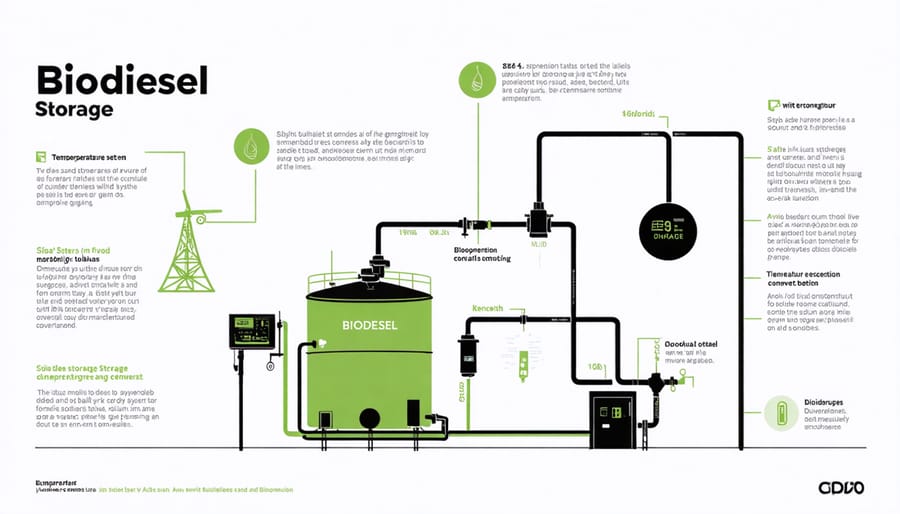
Local Resources and Support
Alberta offers a robust network of biodiesel resources and support systems for farmers looking to integrate renewable farm energy solutions into their operations. Leading suppliers like Western Canada Biodiesel and Prairie Bio-Energy provide high-quality biodiesel products and technical support across the province.
The Alberta Renewable Energy Cooperative (AREC) serves as a central hub for farmers interested in biofuel adoption, offering mentorship programs and connecting experienced producers with newcomers. Their monthly workshops in major agricultural centres provide hands-on training and networking opportunities.
Local agricultural extension offices maintain comprehensive databases of equipment suppliers, testing facilities, and funding programs specific to biodiesel initiatives. The Alberta Biomass Producers Association offers members access to bulk purchasing programs and shared equipment schemes, helping reduce initial implementation costs.
For technical support, the University of Alberta’s Agricultural Technology Centre provides soil testing and feedstock analysis services, while Olds College’s Centre for Innovation offers specialized consulting for on-farm biodiesel production systems.
Financial assistance is available through the Alberta Farm Fuel Benefit program and the Agricultural Clean Technology Program, which can cover up to 50% of eligible costs for biodiesel production equipment and infrastructure upgrades. Connect with your local agricultural fieldman for guidance on accessing these resources and joining regional biofuel producer networks.
As we’ve explored throughout this guide, biodiesel presents a compelling opportunity for Canadian farmers to enhance their operations while contributing to environmental sustainability. The benefits are clear: reduced greenhouse gas emissions, improved engine performance, and the potential for significant cost savings over time. By implementing biodiesel in your farming operations, you’re not just making a smart business decision – you’re investing in the future of Canadian agriculture.
Many Alberta farmers have already discovered that switching to biodiesel has helped them reduce their carbon footprint while maintaining or even improving their equipment’s performance. The ability to produce fuel from your own crops or waste materials creates a sustainable cycle that benefits both your farm and the broader community.
Now is the perfect time to take action. Start by conducting a feasibility study for your operation, connect with local biodiesel producers, or explore options for on-farm production. Remember that government incentives and support programs are available to help ease the transition. Your local agricultural extension office can provide guidance on getting started.
By embracing biodiesel, you’re joining a growing community of forward-thinking Canadian farmers who are leading the way in sustainable agriculture. Together, we can build a more resilient and environmentally conscious farming sector while maintaining the productivity and efficiency that Canadian agriculture is known for.
Don’t wait to make the switch – your farm’s sustainable future begins with the decisions you make today.

